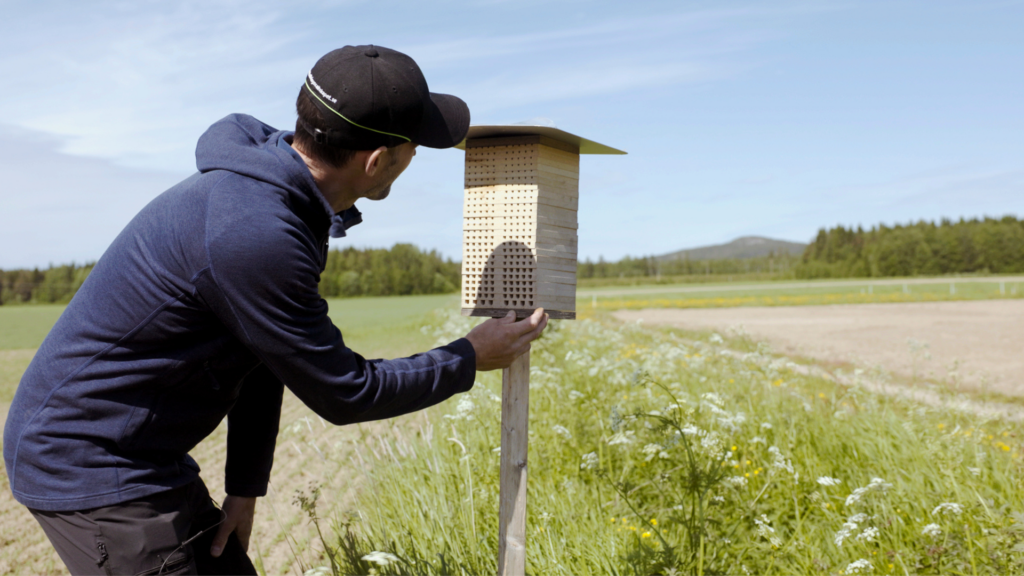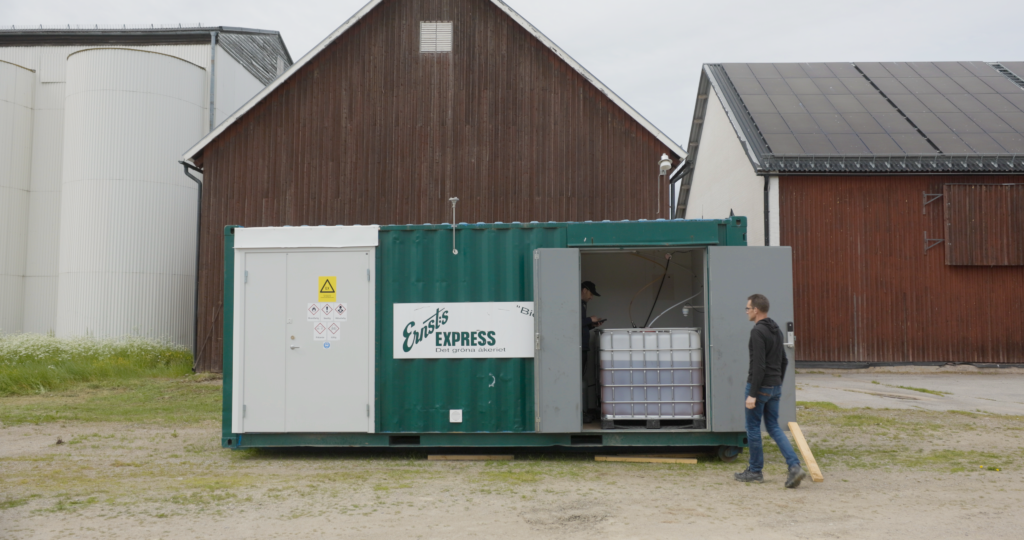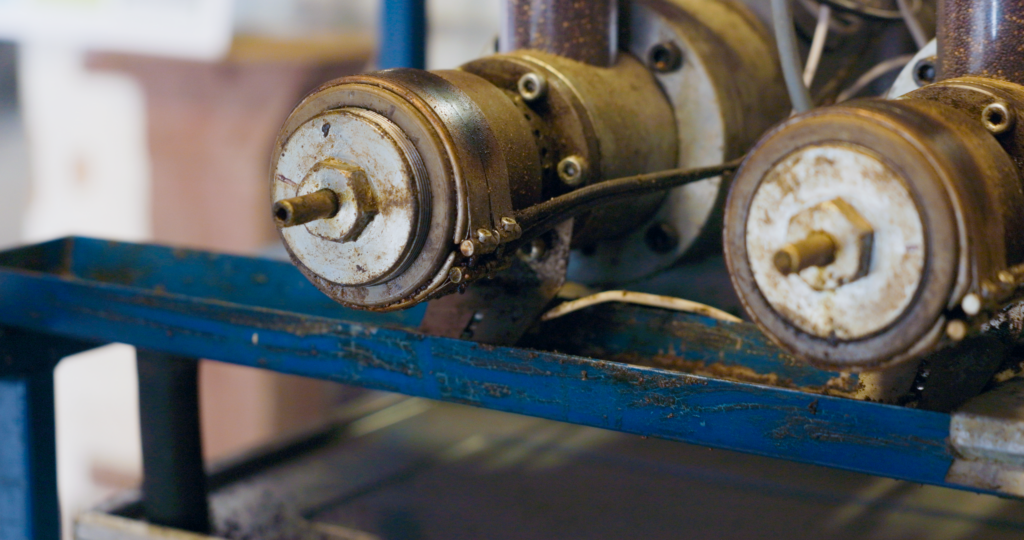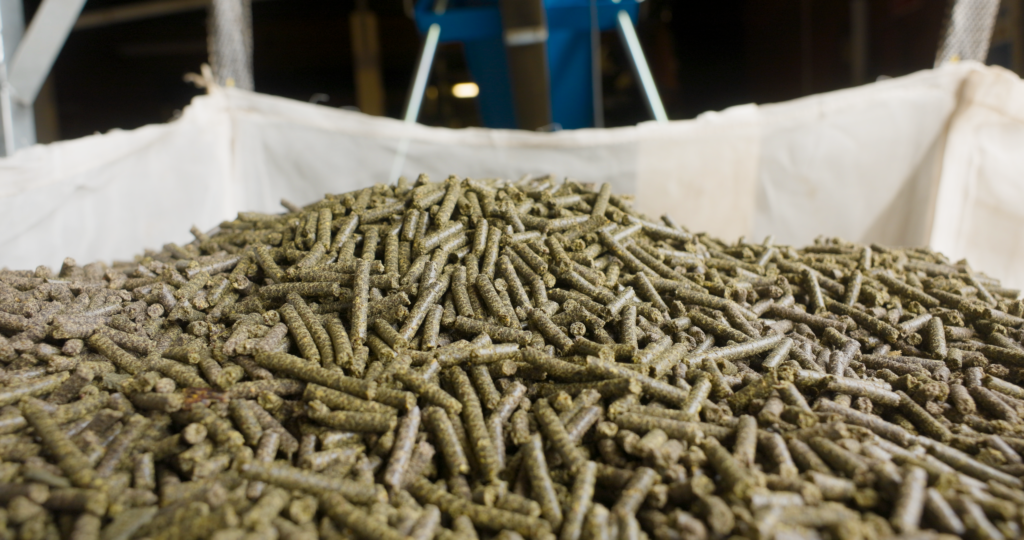Transforming Agriculture in Northern Sweden
How a crop could fuel a circular value chain in cold climates, producing everything from animal feed to renewable biodiesel.
In Upper Norrland, the northernmost region of Sweden, farming is a major challenge. Arable land is scarce, and climate conditions are harsh due to their long and intense cold seasons. Many of the lands in the north are classified as ‘marginal’ because of their low agricultural value: production costs outweigh potential revenue. Nevertheless, a group of researchers and agricultural experts has launched an innovative bid to make these lands productive by cultivating turnip rape and using it to produce biodiesel, animal feed, and glycerol for use in a biogas plant.
The ambitious project has taken root in the counties of Västerbotten and Norrbotten, where the percentage of arable land is tiny. Only 1.2% of the land in Västerbotten is arable, whereas in Norrbotten it is less than 0.3%. The natural conditions in the area make it difficult to grow anything other than barley, grass or hay; as a result, agriculture focuses mainly on milk and meat production. The region also has the largest land surface and lowest population density in the country, which poses challenges for logistics and cooperation for farming and commercialisation. In addition, the local population is declining and ageing, reducing labour availability and straining rural services.
Facing this scenario, experts started to look for a crop suited to the region that could offer new opportunities for local agriculture and the economy. They landed on turnip rape, an oilseed plant performs well in short growing seasons, which is typical in this region. As an industrial crop suited to cold temperatures, it is more resilient than the more common rapeseed cultivated extensively in southern Sweden.

The crop has the potential to improve soil quality and productivity when employed in rotation with other cereals. Among its benefits, turnip rape can act as a “cleaner” in crop rotation, since it is not susceptible to cereal diseases. It can also reduce the need for tillage, according to various scientific studies. They also contribute to flowering resources for the benefit of pollinators. These qualities led experts to propose turnip rape as the centre of a circular value chain for bio-based production in the region.
Fueling change
The initiative is part of the MarginUp! Project, an EU-funded project that is developing sustainable and circular value chains to produce bioproducts and biofuels from natural raw materials in seven different pilot cases across Europe and the globe. In Sweden, RISE, a state-owned research and innovation institute that collaborates with industry, academia, and the public sector to enhance business competitiveness in the country, is leading the coordination of the project. The pilot case is coordinated by Susanne Paulrud, a senior RISE researcher and project manager with expertise in energy and engineering.
The crop has the potential to improve soil quality and productivity when employed in rotation with other cereals.
The Hushållningssällskapen Norrbotten-Västerbotten (HS) agricultural association is also participating in the project. HS is responsible for cultivating the crop and managing the oil press and drying technologies at the farms. RISE Processum, a RISE subsidiary specialising in biorefinery development, is responsible for automating and optimising the biodiesel production unit. Another partner in the project is Ernsts Express, a major transport company in Sweden, which is responsible for providing the biodiesel plant and testing the biofuel produced in its trucks.

For Susanne Paulrud, it is precisely the involvement of different actors from the value chain that makes this pilot case especially interesting. “We are working in many different stages of the value chain, from cultivation and technology development to building the relationship between stakeholders”, she said. The initiative has brought together farming specialists, scientists, bioenergy experts and business leaders from across the country.
Reversing farming trends
Benjamin Bollhöner, farming advisor from HS, emphasised the importance of the project in light of the current challenges facing Swedish farming. “For a long time, farming has focused particularly on dairy. Dairy farms are getting bigger while smaller ones are closing, leading to a sharp decline in the number of farms”, he explained. This has led to high dependency on the beef and milk markets, a situation that must be addressed by expanding agricultural alternatives.New crops could help reverse the trend of disappearing farms, which is crucial to strengthening the agriclutural sector in the region. “A critical number of farms is needed. If you are the only farm in a huge area, you cannot get help from neighbours and collaboration is impossible, for example, for exchanging machinery, which is essential,” Benjamin said. In this scenario, the pilot aims to demonstrate that turnip rape can be part of the solution.
Finding new crops could help to reverse the trend of farms disappearing, which is crucial to strengthening the farming sector in the region.
The cultivation activities in the project are taking place at two sites: the Öjebyn Agro Park near the town of Piteå and a farm near the town of Skellefteå. Over the past few years, different farming techniques and seed varieties have been tested to identify best practices for cultivation.
Erik Häggbom, deputy researcher at HS, has been behind the different developments in the farms. He explained that during the first year a different sowing technique was implemented, which coincided with a dry season of approximately four weeks with no rain. As a result, they didn’t get any harvest at all in 2023. For the following cropping season, the sowing technique changed with the implementation of a sowing machine, an extra harrowing was done, and less fertiliser was used. This time, the harvest was successful: 1,150 litres of oil were produced, and the first biodiesel batches were completed in 2024.
To extract the oil, turnip rape oilseeds are cleaned and pressed. In the Öjebyn Agro Park, there are two presses that have the capacity to produce approximately 12 litres per hour, which is around 300 litres a day when they operate 24 hours. The extraction process leaves behind press cake, the solid material that remains after seeds have been pressed. In the project, this byproduct is used as animal feed because of its excellent protein-rich properties.

Once the oil has been extracted, it is transformed into biodiesel in the production unit installed in the Öjebyn Agro Park. The biodiesel plant, provided by Ernsts Express, is a lab inside a container, fully equipped with all the tools and technologies needed to produce biofuel. Automation and optimisation were key challenges in the project. Nathalie Söderlind, research and development engineer in RISE Processum, described the process as a “3D Tetris or puzzle to get it all in the container” while looking for efficiency in the production system. For 2025, the project aims to produce 3,000 litres of biodiesel to be later tested in farm machinery and trucks.
This later stage of the biodiesel production process also produces glycerol, a second significant by-product that can be further processed and used in various applications. In the pilot case, glycerol is utilised in experiments to evaluate its potential for biogas production.
Byproducts to harness
By considering all the possible uses of the byproducts, the pilot aims to establish a circular and sustainable value chain that produces a variety of products to be used for the self-sufficiency of farms and commercialisation. The production of biodiesel from the oil extracted from turnip rape serves as a renewable and environmentally friendly alternative to traditional fossil fuels. It reduces dependency on imported fossil fuels, thereby contributing to energy security and reducing carbon emissions. Pressed cakes can be used locally as protein-rich animal feed and as an alternative to imported soy meal. This enhances resource efficiency, minimises reliance on external resources, and reduces emissions associated with transportation. As for crude glycerol, the by-product has the potential to be used in the production of another biofuel, among other uses.

Paulrud believes that the value chain has real potential to be replicated by local farmers, since the crop is flexible and offers many alternative products. “We get so many products from this crop that it is not even necessary to produce biodiesel. You can choose to produce either the seeds, the oil or the animal feed for your own use, or to sell them,” she explained.
Regarding the competitiveness of turnip rape biodiesel, the expert affirms that its price is similar to that of other biofuels and is competitive if a good yield of the crop is achieved. However, it is still not comparable to fossil fuels. For Söderlind, the project contributes to the transition from fossil fuels to renewables by discovering new alternatives. Moreover, it promotes a mindset that enhances innovation at the local level, proving that “good science does not need to be rocket science”.
Making circular fuel attractive
Project members are aware that local farmers can initially be more interested in incorporating the crop in their rotation systems without implementing biodiesel production. To put in place and operate a biodiesel plant requires financial, technical and knowledge resources that not all farmers have at first hand, despite experts’ efforts to make the production unit practical, efficient and accessible. Nevertheless, they believe that it will be possible to implement it locally in the near future. A possible solution, for example, could be the collective operation of the biodiesel plant between an association of farms. In the meantime, simply encouraging farmers to include the crop in their systems is seen as an important first step.
We get so many products from this crop that it is not even necessary to produce biodiesel.
Susanne Paulrud, RISE researcher and pilot coordinator.
The solution also has replication potential in other cold regions of Europe and the world. Phillip Grundmann, coordinator of the MarginUp! project, highlighted that similar experiences are taking place in other Nordic countries in Europe, which shows there is a market for the value chain. Its decentralised structure makes it adaptable to smaller-scale operations where access to large processing facilities is limited. Moreover, the integration of fuel, feed, and other by-products into a single circular model offers a replicable pathway toward rural resilience and increased self-sufficiency in energy and agriculture.
In this way, turnip rape has the potential to change the agricultural landscape of northern Sweden and other cold regions, creating new economic alternatives and proving that farming is feasible in harsh, sparsely populated areas. It also positions these regions at the forefront of the green transition.